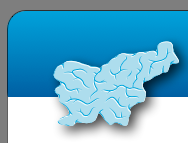

Educational workshop: neuroscience-based psychiatry
About the Educational Workshop
The conference will be accompanied by the Educational Workshop on Neuroscience-based psychiatry (EWNP). The Workshop is primarily designed for psychiatry and neurology residents and clinical psychologists in training, however students and interested professionals are welcome to attend as well.
The Workshop will cover four main topics in two successive sessions, time-coordinated with the scientific programme of the SNC'17, to enable EWNP participants' attendance at the Friday plenary talk and their socialising with the SNC'17 participants during the lunch and coffee breaks by the posters.
Each two-hour session of the EWNP will cover two topics, each topic being first presented by an introductory talk followed by interactive discussion of illustrative cases with active audience participation.
Friday, 29 September | Hall II
EWNP Programme: Session I
14:30—16:30
Borderline personality disorder (BPD)
Bojana Avguštin Avčin
BPD is a serious mental illness marked by unstable moods, behavior, and relationships. People with a borderline level of personality organization have a fragmented sense of self and others. As a consequence they don't have a consistent view of themselves or others, over time and across situations which results in severe and repetitive problems. The rates of co-occurring disorders, such as depression, anxiety disorders, substance abuse, along with self-harm, suicidal behaviors, and completed suicides are high. People with BPD can recover! Psychotherapy is the most important component in the treatment, leading to large reductions in symptoms that persist over time. Over the past 2 decades, many forms of psychotherapy have been developed specifically to treat the disorder.
Psychotic disorders
Borut Škodlar
Psychotherapy of psychotic disorders with its diverse methods and strategies can be related and mutually enriched by the neurobiological and neurocognitive findings, such as disturbances of automatic, pre-conscious processes (e.g. salience etc.) and conscious, volitional processes (e.g. executive functions, memory on different levels etc.).
EWNP Programme: Session II
17:00—19:00
Addiction
Mirjana Radovanovič
Addiction research has been at the forefront of neuroscience, which contributed evidence for many clinically well recognized phenomena, starting from the concept of addiction as a brain disease to understanding the underlying mechanisms resulting in maladaptive behavioral patterns. The presentation will focus on recent relationship and contributions of neuroscience to the state-of-the-art treatment of patients with addiction.
Psychosomatic disorders
Maja Rus Makovec
Somatization, the presentation of emotional distress in the form of somatic complaints, is a clinical area of huge importance in psychosomatic psychiatry. Amygdalae, paralimbic area, especially insula, are likely to play an important role. Functional somatic symptoms can be explained also by central sensitization and disrupted efferent stress pathways. Psychosomatic patients are too often labelled as treatment resistant.
Background thoughts on the EWNP
In western culture learning “per partes” has been favored. Different levels of experience are rarely co-constructed. Neuroscience has provided a huge amount of data which require integration and co-construction between and within disciplines in every day psychiatric practice. Pieces of a puzzle of mental disorders’ psychopathology, (social) neuroscience and psychotherapy can be connected in terms of meaning for every day clinical practice by using systemic paradigm with reflections.
Social neuroscience has been uncovering the biology of human interactions, focusing at effects of social factors on brain and biological functioning, genes and social environments, the biological mechanisms underlying social cognition and emotions, social connections, social interactions, group processes etc. Brain of our patients should be conceptualized as flexible and adaptive, with possible recovery, provided by multilevel stimulation (medication and especially psychotherapy).
Mental disorders trigger philosophical existentialist (self) inquiries, dilemmas of responsibility, guilt, shame, stigma, life functionality and wondering about the possibility of change, forgiveness and inclusion. Narratives about psychological and relational suffering and redemption can be processed through the process of psychosocial interventions/psychotherapy. Psychotherapy can be understood as linguistic and relational tool: how to bond with and how to communicate with our patients (and their families) to introduce change. Attachment and empathy needed for bonding in psychiatry/psychotherapy are typical social neurobiological and core psychotherapeutic concepts, regardless which kind of evidence-based psychotherapy we apply.
Common curriculum to define a cohesive set of neurobiological concepts that apply specifically to psychiatry and psychotherapy is proposed to overcome disciplinary boundaries and stigma of mental disorders. Main dimensions of mental disorders will be presented through psychopathology, neuroscience and psychotherapy perspective, relevant for clinical practice.
Page last updated: Saturday, September 23rd 2017
Quick links
Basic information
Registration
Schedule at a glance
SNC'17 Programme
Educational Workshop
Krka sponsored symposium
AOŽ Memorial Lecture
Plenary lecture
Neuroscience & Society Dialogue
Venue & Travel
Presenter's guide
Contact information
Supported by
Basic information
Get basic information about the conference.
Submit an abstract.
Find more information on registration.
Apply for a travel grant.
Visit the Venue & Travel page for more information on the venue, how to get there and where to stay.
To learn who's who and get contact information, visit the Contacts page.
Key dates
28 April, 2017
Thematic symposia proposal deadline
3 May, 2017
Thematic symposia acceptance notification
20 June, 2017
Travel grant application deadline
25 June, 2017
Extended abstract submission deadline
30 June, 2017
Abstract acceptance notification
25 August, 2017
Early registration deadline
29-30 September, 2017
SNC'17
Previous meetings
SiNAPSA Neuroscience Conference '15
SiNAPSA Neuroscience Conference '13
SiNAPSA Neuroscience Conference '11
SiNAPSA Neuroscience Conference '09
SiNAPSA Neuroscience Conference '07
SiNAPSA Neuroscience Symposium '05
SiNAPSA Symposium on Memory '04
Memos '04 Summer School


